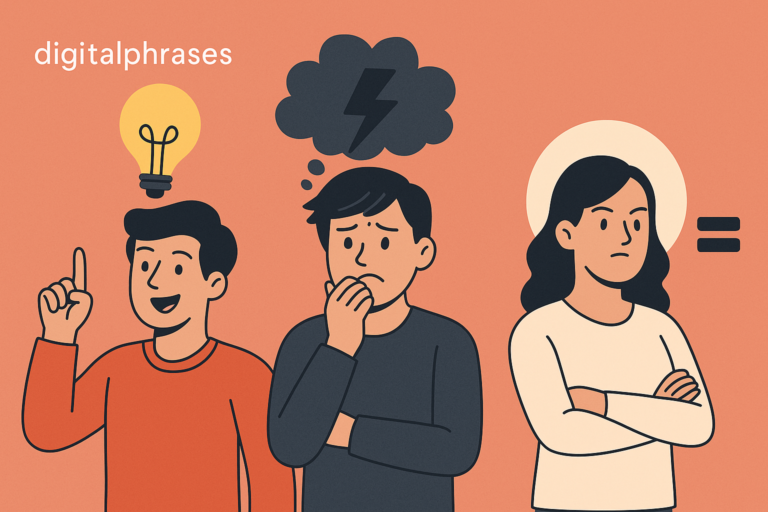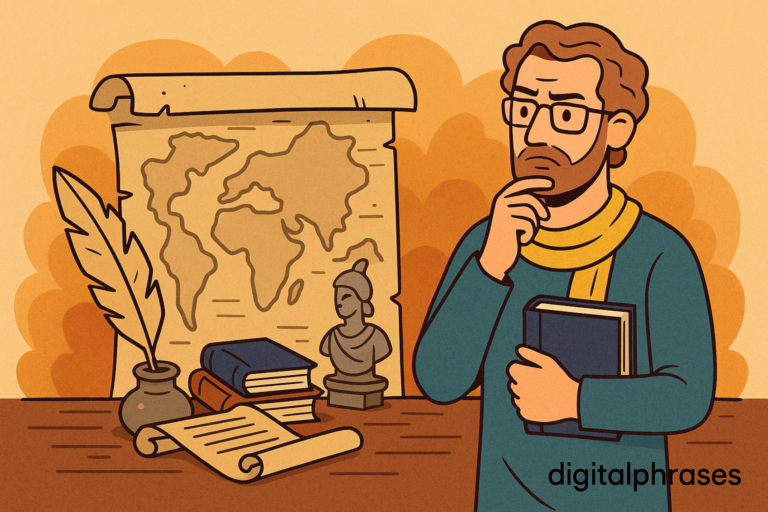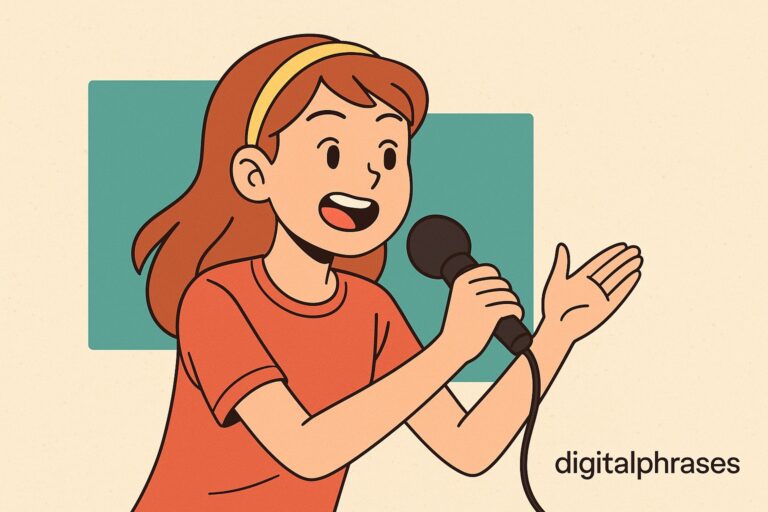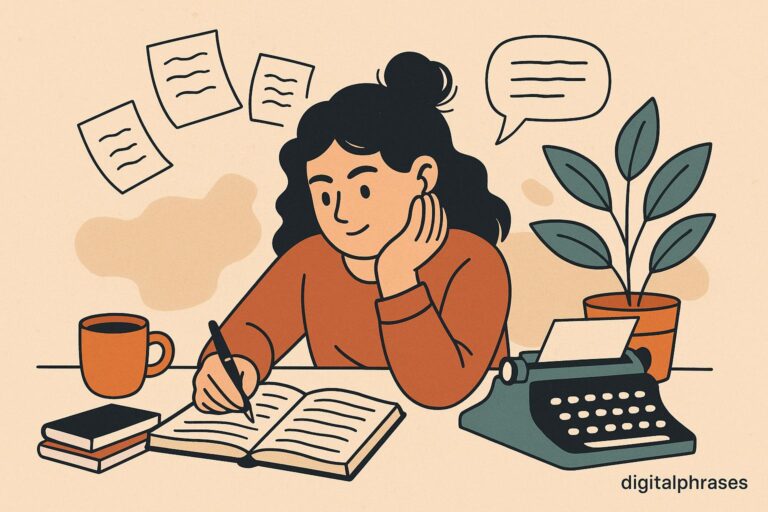What’s the Secret to Using Overheard Conversations Effectively?
You know that feeling when you’re sitting in a coffee shop, half-writing, half-daydreaming, and your ear picks up a conversation from the next table? Most of us have been there. What’s fascinating is that these accidental moments often reveal far more about human nature than anything we can invent sitting alone at our desks.
But let me be clear — just hearing isn’t enough. The real secret is in how we listen, how we interpret, and then how we shape those fragments into meaningful story material.
I’ve been using this technique for years across fiction and nonfiction, and I can tell you this: when used well, overheard dialogue can breathe life into your characters and deepen your narrative authenticity in ways nothing else quite can.
Consider this: In Elmore Leonard’s novels, so much of the charm comes from characters who sound absolutely real — rough, funny, often a bit off-kilter. Leonard famously listened to real speech rhythms obsessively, then distilled them into snappy dialogue that felt both larger than life and true to life.
That’s the kind of result we’re after here. So let’s dig in.
How to Train Your Ear to Hear What Matters
What Should You Actually Be Listening For?
When you overhear a conversation, resist the temptation to grab the obvious “funny” or “quirky” lines right away. Instead, listen for the things people say without thinking — that’s where the gold lies.
Here’s what I pay attention to:
- Tone and rhythm: Are they clipped and tense, or flowing and relaxed? One quick sentence can reveal years of relationship history.
- Word choice and dialect: Regional turns of phrase, industry jargon, generational slang — these are gifts for character voice.
- Emotional subtext: What is left unsaid? If two people are agreeing, but both sound tight-jawed, you’ve just found a perfect model for dialogue with subtext.
- Silence and gaps: The pauses often say more than the words. Watch how hesitation works in real life; it’s a masterclass in tension.
Ethical Boundaries Matter
I know you already get this, but it bears repeating: we’re not there to exploit people or invade privacy. Use fragments, impressions — don’t turn someone’s deeply personal story into your next novel scene wholesale. Change details, blend voices, respect boundaries.
Simple Ways to Use Overheard Bits in Your Story
Bring Characters to Life
Ever notice how beginner dialogue tends to sound like it was written by, well, a writer? Too clean. Too logical. People don’t talk that way.
I once overheard a guy at a gas station say to his friend: “She ain’t mad, man — she just tired of me being me.” Boom. Six words that told me everything about his worldview, his relationship, and the stakes in his life. You bet that line went (in altered form) into a short story later that year.
Capture Authentic Voice
If you’re writing characters from backgrounds very different from your own, you owe it to your story to ground their voices in something real. Overheard speech — when combined with careful research — can help you avoid stereotype and cliché.
Inspire Plot Moments
Sometimes, a snippet of conversation sparks an entire scene or subplot. One of my favorite overheard gems was: “If he brings up the boat one more time, I swear I’m calling her.” I still don’t know what the “boat” was about, but it instantly suggested betrayal, simmering resentment, and a three-way dynamic perfect for drama.
Layer Subtext
Great dialogue is about what’s not being said. Listen for conversations where the speakers dance around the real issue. These are invaluable models for creating tension in your own scenes.
Enrich the Setting
Background noise matters. The cadence of conversation in a Brooklyn deli is nothing like that of a Napa Valley winery. Let overheard voices inform your setting — not just what characters say, but how the space itself “sounds.”
Reinforce Theme Subtly
Imagine your story explores the theme of self-deception. Now imagine a background conversation where a woman reassures her friend: “You’re not selfish, you just know what you want.” That line, drifting through a scene, subtly echoes and reinforces your thematic concerns.
How to Turn Noise Into Story
Filter Ruthlessly
Not everything you hear is story-worthy. Most casual speech is cluttered and directionless. The key is to capture the essence, not the literal words.
When I teach this technique, I emphasize compression: take the core emotional or narrative idea and sharpen it. Maybe a five-minute ramble becomes one surgically chosen line of dialogue.
Use Heightened Reality
Real speech has gold in it, but it also has a lot of filler. In story dialogue, you want the illusion of real speech, not the messy reality. Think of it like this: you’re making a reduction sauce from overheard life — intensifying the flavor.
Create Composite Characters
Don’t be afraid to blend voices. You might overhear a snippet from a teenager on a train, a phrase from an old man at the market, and a cadence from your cousin — all of which combine into one richly authentic character.
Edit for Your Story’s Rhythm
Even the best overheard line needs to fit the story’s tone and pacing. A wonderfully awkward real-life phrase might ruin a carefully built dramatic moment unless reshaped. Trust your ear as a storyteller: the goal is to serve the narrative, not to slavishly reproduce real life.
If you start practicing this with intention — training your ear, capturing fragments, shaping them with care — I promise you’ll see your dialogue and scenes take on new depth and texture.
The world is talking all around us. We just need to listen like storytellers.
Easy Ways to Work Overheard Snippets Into Your Story
You’ve been listening, jotting things down (or mentally noting them), and training your ear. Now the real fun begins: weaving those overheard moments into your stories so they feel natural—not like random street noise forced into your scenes.
This is where even seasoned storytellers sometimes trip up. They hear a line they love and drop it straight into a scene, but it lands with a clunk. Why? Because they haven’t considered how to adapt it to their narrative voice and their characters’ world.
Let’s break down some practical ways to integrate overheard gems effectively. I’ll give examples from my own experience and from some writers whose work I admire.
Make Dialogue Sound Like It Belongs
You’re writing a 19th-century historical novel. You overhear a couple on the subway today arguing about money. Great dynamics—but obviously, you can’t have them saying, “You’re just flexing with that bonus check.”
But here’s the trick: look at the emotional core of the conversation. Are they negotiating power? Are they hiding resentment behind humor? That dynamic can absolutely live in your historical novel—you just need to translate it.
I once heard two teens in a park say:
“Bro, she’s straight ghostin’ you. You just can’t see it.”
I didn’t write a modern teen story—but I did use that dynamic of a character clinging to denial, with others gently (or not so gently) trying to pull them into reality. In my version, it became:
“She’s made her choice. It’s you who hasn’t.”
Same emotional moment—different language, different world.
Layer Overheard Phrases Into Character Voice
One of the best uses of overheard speech is building authentic, distinct character voices—especially when you’re writing outside your personal experience.
I keep a notebook (physical and digital) where I jot down phrases, speech patterns, weird verbal tics. Over time, this builds a palette of possible voices I can draw from.
Example: I once overheard a construction foreman say to a new guy, in total exasperation:
“You ain’t got the tools or the tune to dance this job, son.”
That line (tweaked a bit) ended up in a crime novel I was ghostwriting, coming from a grizzled ex-cop. I’d never have thought of that metaphor myself—but once I heard it, it fit perfectly for a man who speaks in layered, slightly poetic gruffness.
Tip: don’t be afraid to let overheard phrases shape your character. Sometimes a single line can open up their entire voice for you.
Use Overheard Moments to Build Atmosphere
A bustling market, a crowded family dinner, a tense office. The background soundscape matters as much as your main characters’ dialogue.
Here’s a simple trick I use: when drafting a scene, I’ll pause and ask myself,
“What’s one overheard fragment my POV character might catch here?”
It doesn’t have to advance the plot. It just deepens the sense of place.
In one story, set at a chaotic wedding reception, I added a passing line from an older relative:
“I told her, you marry an artist, you marry the starving too.”
Totally unrelated to the scene’s main tension, but it added texture—and quietly echoed the theme of sacrifice running through the story.
Spark Plot Ideas From Overheard Snippets
This might be my favorite way to use overheard speech: let it trigger entire scenes or conflicts you hadn’t planned.
Example: I once overheard a man on the phone saying, in an exhausted voice:
“Look, if the cat’s back, then he knows.”
I have no idea what that meant in real life—but it instantly suggested a layered, tense situation involving secrets, returning figures, and unspoken understandings. That snippet became the seed for a whole short story.
Lesson: keep your mind loose. Sometimes an overheard line isn’t just a garnish for a scene—it’s a doorway into an entirely new narrative possibility.
How to Distill Real Speech Into Storyworthy Dialogue
Now here’s the deeper craft part—where I see even expert storytellers sometimes falter.
We love the authenticity of overheard speech. But real conversation is messy, full of filler, repetition, and awkward phrasing. If you drop it into your story raw, it’ll likely feel flat or confusing.
The trick is to distill the essence while preserving the feeling of realness.
Compress Without Losing Voice
Let’s say you overhear someone saying:
“Well, yeah, I mean, I guess if you think about it, maybe he was kinda wrong but also, like, you know, not totally.”
If that’s the rhythm you want, great—but chances are, your story will flow better if you compress it:
“Maybe he was wrong. Maybe not.”
Cut the noise; keep the vibe.
This is why writers like George Saunders and Lydia Davis write dialogue that feels real but reads much sharper than actual conversation.
Heighten Emotional Resonance
Sometimes the overheard line is interesting but emotionally flat. In fiction, you can heighten it while staying true to its core.
Example: I once overheard a friend say, flatly:
“She didn’t want the job. She just wanted to win it.”
In my novel version, the character said it with bitterness and regret:
“She never wanted that job. Just the trophy of it.”
Subtle shift—but the emotional punch hit harder.
Blend Voices for Richer Characters
Rarely will one overheard person give you an entire perfect voice. More often, I’ll combine:
- The rhythm from one speaker.
- A metaphor from another.
- An attitude from a third.
That’s how layered, authentic-feeling voices emerge.
For example, a cab driver’s offhand comment about traffic, a friend’s sarcastic turn of phrase, and a bartender’s resigned tone once combined in my head into the voice of a weary private detective in a noir story.
Be a magpie—steal the shiny bits and build something new.
Edit to Match Your Story’s Rhythm
This is the final, crucial step: even the best overheard snippet must fit the music of your prose.
A wonderfully awkward real-world line might ruin the pacing of your climactic scene. Conversely, a too-clean, too-literary phrase in a casual conversation can ring false.
Always ask: does this line sound like it belongs in this scene, in this moment, in this character’s mouth?
If not—reshape it. You’re a storyteller first, a transcriber second.
Before You Leave…
Overheard conversations are all around us—free, abundant, rich with possibilities. But like any storytelling tool, they require craft and care to use well.
Train your ear. Listen deeply. Capture not just words, but tone, rhythm, and subtext. Then distill, shape, and blend until the overheard becomes truly your own.
And remember: sometimes, one offhand line from a stranger can unlock an entire new layer of your story. Keep your notebook (and your curiosity) ready.
Happy eavesdropping.






